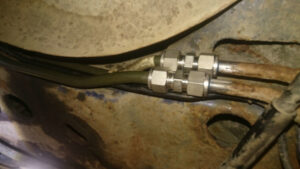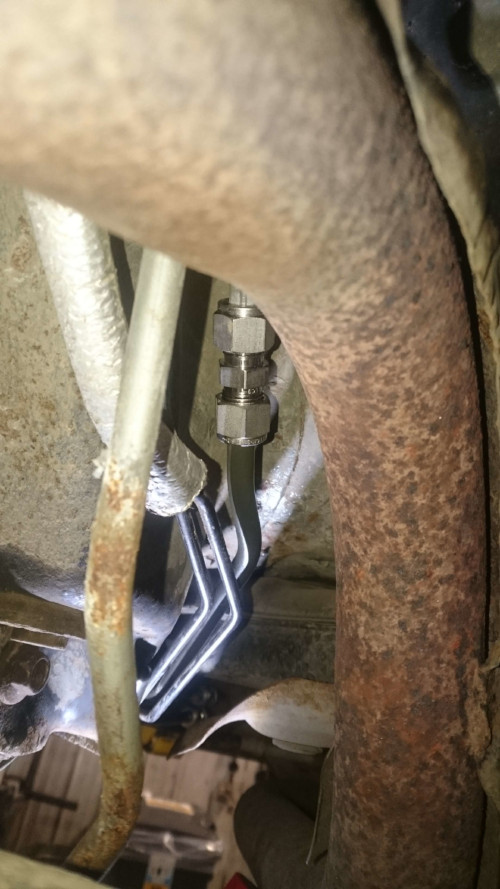Rust, the cancer of a car

Rust is an electrochemical reaction which occurs when moisture contacts bare steel. Creases or depressions in the metal can trap moisture, increasing contact time which causes more rusting to occur. The rate of rusting increases with temperature.
Vehicle rusting began to be a serious problem in the 1950s when increasing amounts of salt (mostly sodium chloride and sometimes calcium chloride) started being used as a safety measure to melt road ice in winter.
Here in Alberta salt isn’t used much on the road ways, but vehicles that travel on muddy rural roads can trap moisture and residue causing rust.
Today’s car manufacturers use alloys and coatings that can help to impede rust from causing damage. They have also changed design to decrease the number of spots that rust can begin by smoothing out the shape under your car . As a result, vehicles are now lasting longer, even without additional rustproofing.
However, because vehicles are on the road longer, other parts, such as brake and fuel lines, cooling and power steering tubes, and electrical connectors have become more likely to rust and corrode during the life of the vehicle. A careful greasing every year or two with a light oil-type treatment can greatly prolong the life of these components and significantly reduce maintenance costs.
Undercoating is also available and is an additional source of revenue for many vehicle dealers. This is not really a good choice to make if you wish to keep your vehicle for a long time. Not only do thick coatings not protect many of the parts a fine oil-based spray reaches, but if improperly applied may actually promote rust by plugging critical drain holes.
Because corrosion is an electrochemical reaction, electricity can, in some cases, be used to stop or slow the reaction. So-called “cathodic” corrosion protection uses a negative electrical charge applied to the protected metal. Cathodic corrosion protection has been around since it was first used for ships in 1824 and continues to be a proven way to protect metal in such applications as pipelines and storage tanks.
Dealerships are now promoting electronic rust inhibiting systems costing hundreds of dollars. While lab tests have shown this works on sheet metal it has not been proven that it will provide any significant protection for a motor vehicle in everyday use. You will only know if it doesn’t work years after you have paid for it. If ever.
Greasing of vulnerable areas of your car is still the best protection for now. In a decade the results from these new electronic rust inhibitors will be known for sure.


Here are images of a recent fuel line repair due to moisture retained along lines.
